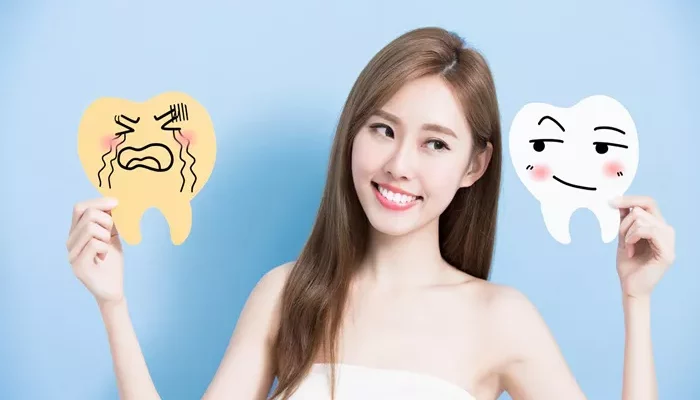Teeth whitening is a common concern for many people. A bright, white smile is often associated with health and beauty. As a result, various methods and products claim to whiten teeth. One such method that has gained attention is the use of cornstarch. In this article, we will explore whether cornstarch can effectively whiten teeth, how it works, and what other options are available for achieving a whiter smile.
Understanding Teeth Staining
Why Do Teeth Get Stained?
Teeth can become stained for various reasons. Some common causes include:
Food and Beverages: Certain foods and drinks, such as coffee, tea, red wine, and berries, can stain teeth over time.
Tobacco Use: Smoking or chewing tobacco can lead to significant discoloration.
Poor Oral Hygiene: Inadequate brushing and flossing can allow plaque and tartar to build up, leading to yellowed teeth.
Age: As people age, the enamel on their teeth can wear down, revealing the yellowish dentin underneath.
Medications: Some medications, such as tetracycline antibiotics, can cause teeth to become discolored.
Types of Teeth Stains
Teeth stains can be categorized into two main types:
Extrinsic Stains: These stains occur on the surface of the teeth and are often caused by food, drinks, and tobacco. They can usually be removed with regular brushing and professional cleanings.
Intrinsic Stains: These stains occur within the tooth structure and can be caused by factors such as aging, trauma, or certain medications. Intrinsic stains are more challenging to remove and may require professional whitening treatments.
What Is Cornstarch?
Overview of Cornstarch
Cornstarch is a fine, white powder made from the endosperm of corn kernels. It is commonly used in cooking and baking as a thickening agent. In addition to its culinary uses, cornstarch has been explored for various household and personal care applications.
Cornstarch in Oral Care
Some people have turned to cornstarch as a potential teeth-whitening agent. The idea is that its fine texture can help remove surface stains from teeth. However, it is essential to understand how effective cornstarch is for this purpose.
Can Cornstarch Whiten Teeth?
The Mechanism of Action
Cornstarch is not a bleaching agent like hydrogen peroxide or other commercial whitening products. Instead, it works mechanically rather than chemically. Here’s how it is thought to work:
Abrasive Action: The fine particles of cornstarch may provide a mild abrasive action. When used as a paste or mixed with water, it can help scrub away surface stains.
Absorption: Cornstarch can absorb some substances, which may help remove certain types of stains from the teeth.
Limitations of Cornstarch for Whitening
While cornstarch may provide some benefits, it has significant limitations:
Lack of Scientific Evidence: There is little scientific research to support the claim that cornstarch can effectively whiten teeth. Most evidence is anecdotal.
Mild Abrasiveness: While cornstarch is less abrasive than some commercial whitening products, excessive use can still wear down tooth enamel over time.
Not a Substitute for Professional Care: Cornstarch should not be considered a replacement for professional dental care or established whitening treatments.
Alternative Teeth Whitening Methods
If you are looking for effective teeth whitening options, consider the following alternatives:
1. Over-the-Counter Whitening Products
Many over-the-counter products are available for teeth whitening. These include:
Whitening Toothpaste: These toothpaste brands contain mild abrasives and chemical agents that help remove surface stains.
Whitening Strips: These thin, flexible strips are coated with a whitening gel containing hydrogen peroxide. They are applied directly to the teeth and can provide noticeable results over time.
Whitening Gels and Pens: These products allow for targeted application of whitening agents to specific teeth.
2. Professional Whitening Treatments
For more significant and faster results, professional whitening treatments are available through dental offices:
In-Office Whitening: This method involves applying a stronger whitening gel to the teeth and using a special light to enhance the effects. Results can be seen in just one visit.
Custom Tray Whitening: Dentists can create custom trays that fit your teeth perfectly. You will apply a whitening gel to the trays and wear them at home for a specified period.
3. Natural Remedies
Some people prefer natural remedies for teeth whitening. While the effectiveness of these methods varies, some options include:
Baking Soda: This common household ingredient has mild abrasive properties. Mixing it with water to form a paste and brushing with it occasionally may help remove surface stains.
Activated Charcoal: Some people use activated charcoal as a natural teeth whitener. However, its effectiveness is debated, and it may be too abrasive for regular use.
Oil Pulling: This ancient practice involves swishing oil (often coconut oil) in the mouth for 10-20 minutes. Some proponents claim it helps whiten teeth and improve oral health, although scientific evidence is limited.
Maintaining Whiter Teeth
Once you achieve a whiter smile, it is essential to maintain it. Here are some tips:
1. Practice Good Oral Hygiene
Brush your teeth at least twice a day and floss daily. This helps remove plaque and prevent stains from developing.
2. Avoid Staining Foods and Drinks
Limit your intake of foods and beverages that can stain your teeth, such as coffee, tea, red wine, and dark berries. If you consume these items, rinse your mouth with water afterward.
3. Quit Smoking
If you smoke or use tobacco products, quitting can significantly improve your dental health and help prevent further staining.
4. Regular Dental Check-ups
Visit your dentist regularly for cleanings and check-ups. Professional cleanings can help remove surface stains and keep your teeth healthy.
Conclusion
While cornstarch may have some mild abrasive properties that could help remove surface stains, it is not a scientifically proven method for whitening teeth. There are many more effective options available, including over-the-counter products and professional treatments.
If you are interested in whitening your teeth, consider consulting with your dentist to discuss the best options for your needs. Maintaining good oral hygiene and avoiding staining substances will also help keep your smile bright and healthy.
Related topics:

